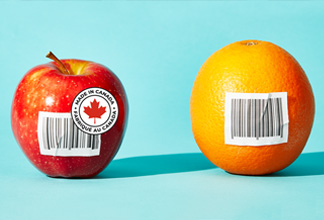What the Latest COVID-19 Policy Changes Mean for Your Wallet
Written by The Content Team | Published on April 8, 2020
Written by The Content Team | Published on April 8, 2020
The federal government is releasing rapid-fire policy changes and updates in an effort to meet the needs of Canadians during the pandemic. Below we summarize some of the key measures for core groups.
Individuals and families
Small- and medium-sized businesses
For additional information regarding eligibility and enrollment criteria, read Canada's COVID-19 Economic Response Plan on the Government of Canada website (www.canada.ca/en/department-finance/economic-response-plan.html).
For a roundup of coronavirus coverage, plus timely reminders and tools that can help when markets are volatile, click here.
RBC Direct Investing Inc. and Royal Bank of Canada are separate corporate entities which are affiliated. RBC Direct Investing Inc. is a wholly owned subsidiary of Royal Bank of Canada and is a Member of the Canadian Investment Regulatory Organization and the Canadian Investor Protection Fund. Royal Bank of Canada and certain of its issuers are related to RBC Direct Investing Inc. RBC Direct Investing Inc. does not provide investment advice or recommendations regarding the purchase or sale of any securities. Investors are responsible for their own investment decisions. RBC Direct Investing is a business name used by RBC Direct Investing Inc. ® / ™ Trademark(s) of Royal Bank of Canada. RBC and Royal Bank are registered trademarks of Royal Bank of Canada. Used under licence.
© Royal Bank of Canada 2025.
Any information, opinions or views provided in this document, including hyperlinks to the RBC Direct Investing Inc. website or the websites of its affiliates or third parties, are for your general information only, and are not intended to provide legal, investment, financial, accounting, tax or other professional advice. While information presented is believed to be factual and current, its accuracy is not guaranteed and it should not be regarded as a complete analysis of the subjects discussed. All expressions of opinion reflect the judgment of the author(s) as of the date of publication and are subject to change. No endorsement of any third parties or their advice, opinions, information, products or services is expressly given or implied by RBC Direct Investing Inc. or its affiliates. You should consult with your advisor before taking any action based upon the information contained in this document.
Furthermore, the products, services and securities referred to in this publication are only available in Canada and other jurisdictions where they may be legally offered for sale. Information available on the RBC Direct Investing website is intended for access by residents of Canada only, and should not be accessed from any jurisdiction outside Canada.

The U.S. reciprocal tariffs announced have been large and broad-based, but critically exempt Canada and Mexico (at least for now)

Investor interest in Bitcoin is increasing – learn about crypto ETFs

The effects of tariffs can be wide ranging, both economically and behaviourally.